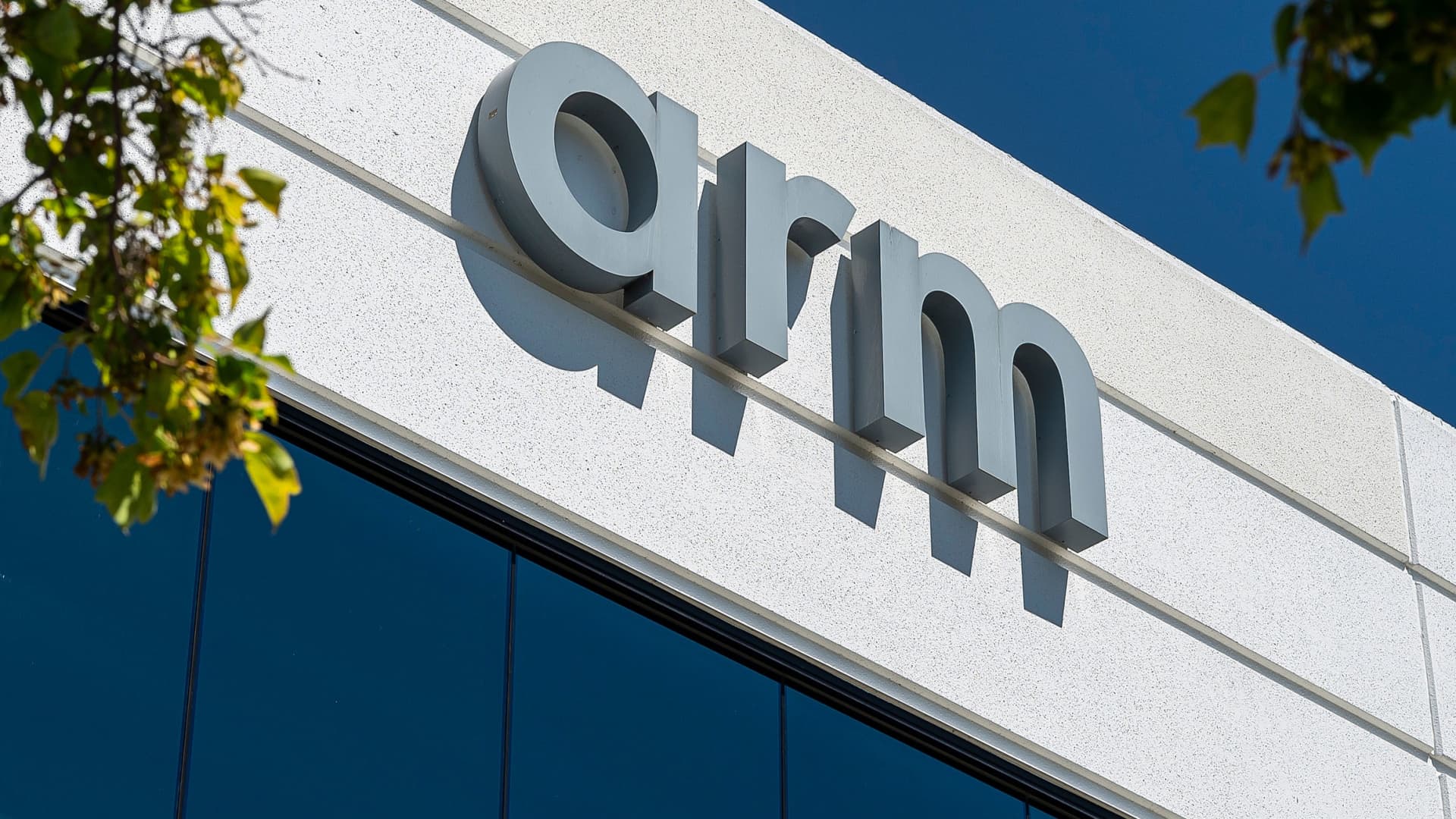Arm prices IPO at $51 per share, valuing company at over $54 billion

The Arm U.S. headquarters in San Jose, California, Sept. 6, 2023.
David Paul Morris | Bloomberg | Getty Images
Arm, the chip design firm that supplies core technology to companies including Apple and Nvidia, priced its initial public offering at $51 a share.
Arm’s fully diluted market cap, which includes outstanding restricted stock units, is over $54 billion at the $51 offer price. The company said in a press release that it will start trading on Thursday under the symbol “ARM.”
The U.K.-based company is listing at least 95.5 million American depository shares on the Nasdaq, and SoftBank, its current owner, will control about 90% of the company’s outstanding shares.
The offering is at the top of Arm’s expected price range of $47 to $51.
Arm said in its prospectus that revenue in its fiscal year that ended in March slipped less than 1% from the prior year to $2.68 billion. Net income in fiscal 2023 dropped 22% to $524 million.
Arm is riding the wave of excitement around artificial intelligence as it aims to crack open the tech IPO market after a nearly two-year pause. It’s set to be the biggest technology offering of the year.
Arm’s valuation for a chip company is exceedingly rich when compared to any player in the market other than Nvidia. At $54 billion, Arm would carry a price-to-earnings multiple of about 104, based on profit in the latest fiscal year.
Nvidia is valued at 108 times earnings, but that’s after forecasting revenue growth of 170% for the current quarter, driven by AI chips. The Invesco PHLX Semiconductor ETF, which is designed to measure the performance of the 30 biggest U.S. chip companies, has a price-to-earnings ratio of about 25.
Many of Arm’s most important customers, including Apple, Google, Nvidia, Samsung, AMD, Intel and Taiwan Semiconductor Manufacturing Company, said they would buy shares as part of the offering. Arm’s technology is used in 99% of mobile processors around the world.
Arm’s architecture outlines how a central processor works at its most basic level, such as how to do arithmetic or how to access computer memory. The company was originally founded in 1990 to build chips for devices with batteries and took off when it started to be widely used in smartphone chips. Arm’s instruction set uses less power than the x86 architecture used in PC and server chips by Intel and AMD.
While some of Arm’s customers just use the instruction set and design their own CPUs, Arm also licenses entire designs of its own to chipmakers they can use as CPU cores in their own chips. Amazon uses Arm CPU designs in some of its server chips.
In a presentation to investors, Arm officials said the company has room to grow beyond just smartphones and wants to design more chips for data centers and AI applications. It said it expects the total market for chip designs to be worth about $250 billion by 2025.
Correction: A prior version of this story had the incorrect IPO price










